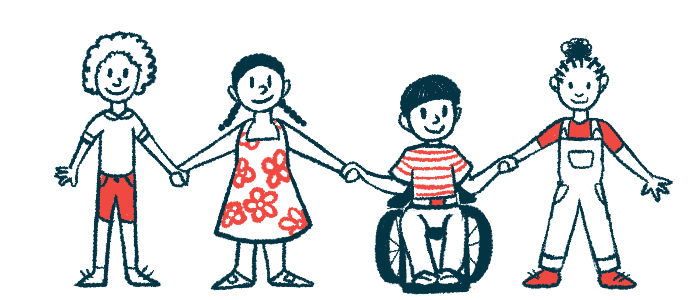CF Foundation awards $3M to study mental health in CF children
Researcher's earlier work led to screening for anxiety, depression in adults
Written by |

The Cystic Fibrosis Foundation has awarded $3 million to support a study of mental health among young children with cystic fibrosis (CF) to University at Buffalo (UB) researcher Beth A. Smith, MD, a psychiatrist whose work in this area has already helped to get new screening programs into routine care for CF adults and adolescents.
An earlier study led by Smith that evaluated mental health among adolescents and adults with CF — which was known as TIDES, short for The International Depression Epidemiological Study — led to annual screening for anxiety and depression that’s now routine for nearly 90% of these patients.
The newly launched study is an extension of that work, and Smith and colleagues now will evaluate the prevalence of mental health concerns in CF children younger than 12 in the U.S., according to a university news story.
“That’s the goal of this new study, which we are calling TIDES 2.0,” said Smith, the study lead and a clinical professor of psychiatry and pediatrics at UB’s Jacobs School of Medicine and Biomedical Sciences. “It will allow us to take what we have done nationally and internationally for adolescents and adults with CF and do it for children from 18 months up to 11 years old.”
TIDES 2.0 will enroll CF children younger than 12 at 16 sites across US
TIDES 2.0 will enroll CF children at the Cystic Fibrosis Center of Western New York at Oishei Hospital in Buffalo and 15 other clinical sites across the U.S. These include Massachusetts General Hospital, a teaching hospital of Harvard Medical School, and the Johns Hopkins University School of Medicine, in Maryland.
Anyone interested in enrolling a child can contact Smith at [email protected] Julianne Hergenroder, research coordinator, at [email protected].
Usually diagnosed in infancy, CF is a rare genetic disease marked by the abnormal buildup of thick and sticky mucus in various organs, particularly the lungs, pancreas, liver, and intestines.
Due to improvements in specialized care and the development of CFTR modulator therapies, the lifespan of people with CF has markedly increased in recent decades. However, patients can spend several hours a day clearing airways of mucus, and often experience various complications, such as diabetes, sterility, and cancer. In some cases, a lung transplant is required.
“Even though life expectancy has improved so much, there are a lot of comorbidities [co-existing conditions] now that people are living longer,” said Smith, who is also interim chair of psychiatry at the Jacobs School and founding chair of the Cystic Fibrosis Foundation’s Mental Health Advisory Committee.
“[CF patients] have much higher rates of colorectal cancer, they get CF-related diabetes because their pancreas gets bogged down, and boys find out they might be sterile,” Smith said. “There’s just a lot that gets unfolded over time for these young kids.”
Studies suggest that depression in people with CF is associated with worse disease outcomes, including reduced lung function, lower body mass index (a measure of body fat), and increased hospitalizations and mortality. In a previous study, Smith found that untreated CF patients with chronic depressive symptoms were more likely to die than those whose depression was addressed.
Moreover, in 2020, Smith and her colleagues published a study showing higher than normal rates of depressive symptoms in CF children and their parents, as well as lower adherence to airway clearance in such children.
“Kids become sad and irritable, they start to have a lot of negative thoughts about their lives, they notice that they’re different from other kids,” Smith said.
Study seeks to ID mental health issues most common in children
In addition to assessing the national prevalence of mental health issues in young children with CF, TIDES 2.0 will identify ways to screen for these problems, characterize those issues most commonly seen in treated children, and identify potential risk factors.
Similar to TIDES, the ultimate goal is to adopt new international guidelines on mental health screening for CF children.
“Looking back on when I first began working with patients with CF in the early 2000s, I think if mental health screening had been more prominent and we had been addressing it in a different way, maybe we would have been able to change some of the patients’ trajectories,” Smith said.
Can we change [patients’] trajectories if we treat … depression and treat it well and help with developing coping skills and disease self-management?
Now, Smith said, the questions are these: “Can we change these trajectories if we treat the depression and treat it well and help with developing coping skills and disease self-management? Can we change the outcome so a positive depressive screening in someone with CF isn’t associated with a doubling of the risk of mortality?”
According to the researcher, each patient’s entire CF healthcare team must be committed to mental health screening as part of standard clinical practice for change to be made.
“The pulmonologists are so important,” Smith said. “They run the clinics; they’re the boots on the ground. As a mental health clinician, I can say that mental health screening is important, but it won’t happen unless the pulmonologists understand that this is important to total CF care.”








